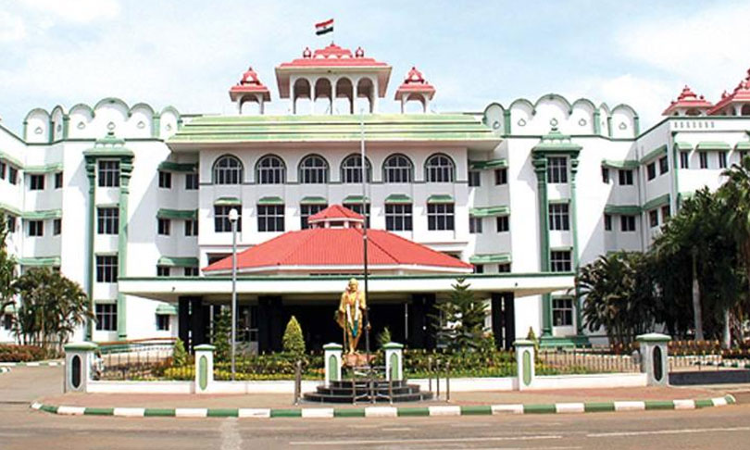- Home
- /
- High Courts
- /
- Madras High Court
- /
- How Is Data Collected By Political...
How Is Data Collected By Political Parties In Door-To-Door Campaign Stored? What Are Its Privacy Implications? Madras High Court To Examine
Upasana Sajeev
21 July 2025 8:40 PM IST
The Madras High Court is set to examine how right to privacy is affected when data of citizens is collected during a membership drive by the political parties.The Madurai bench of Justice SM Subramaniam and Justice AD Maria Clete noted that the DMK party was conducting door-to-door campaigning collecting data. However, it was not known how this data was stored and what its implications were...
The Madras High Court is set to examine how right to privacy is affected when data of citizens is collected during a membership drive by the political parties.
The Madurai bench of Justice SM Subramaniam and Justice AD Maria Clete noted that the DMK party was conducting door-to-door campaigning collecting data. However, it was not known how this data was stored and what its implications were on the right to privacy of the voter. Thus, the court has set out to examine the same.
“In the present case, a door-to-door data collection is carried out and a membership drive is conducted. But, how this data is stored and processed and the implications on the right to privacy of the voter including the right to privacy of the political affiliation also ought to be examined,” the court noted.
The court has also directed the Dravida Munnetra Kazhagam (DMK) party to give details on how data, collected as part of the party's membership drive is stored. Meanwhile the bench has also restrained the party from sending OTP verification messages in the “Oraniyil Tamil Nadu Membership Drive”.
“In the light of the above, an order of interim injunction is granted to the limited extent of restraining the 5th respondent from sending OTP verification messages in the “Oraniyil Tamil Nadu Membership Drive” until the issues of right to privacy and data protection are examined in detail in this Writ Petition, since fundamental rights of the people are at Stake,” the court observed.
The court stressed that a free and valid consent was essential part of the membership drive organised by the parties and no force or coercion should be employed while conducting such membership drive.
“A valid and free consent is essential part of such membership programmes organized by the political parties. Hence, no force or coercion shall be employed in such membership drive conducted by the political parties. The fifth respondent is directed to provide details on the data privacy policy employed in this membership campaign and ensure the security of the data collected and whether “informed consent” is obtained from the individuals in this membership drive,” the court directed.
The court was hearing a petition filed by Rajkumar challenging the usage of Aadhaar data in DMK's membership drive.
The court noted that as part of the membership drive, personal information, including mobile numbers, were obtained and OTP verification messages were sent to these mobile numbers. The court noted that in absence of accountability and transparency, this data collection would raise serious concerns of data breach. The court also noted that there was a possibility that the data will be used by third parties which were handling the data of the political parties, thus raising serious concerns on privacy.
The court also underlined that data protection and voter data privacy were essential facets of Article 21 of the constitution and would come within the ambit of right to privacy.
The court also remarked that the door-to-door campaigning was a new area of study, which was a departure from the conventional modes of indicting new party members. The court added that a clarity was needed on how the political parties were using this data and how this data was stored and processed.
While Justice Subramaniam thought it fit to restrain the party from using Adhaar-based OTP for its campaign, Justice Clete thought that the respondents should be given an opportunity to present their case. Justice Clete however joined with Justice Subramaniam and ordered an interim injunction.
Case Title: Rajkumar v State of Tamil Nadu and Others
Case No: W.P(MD)No.19826 of 2025



